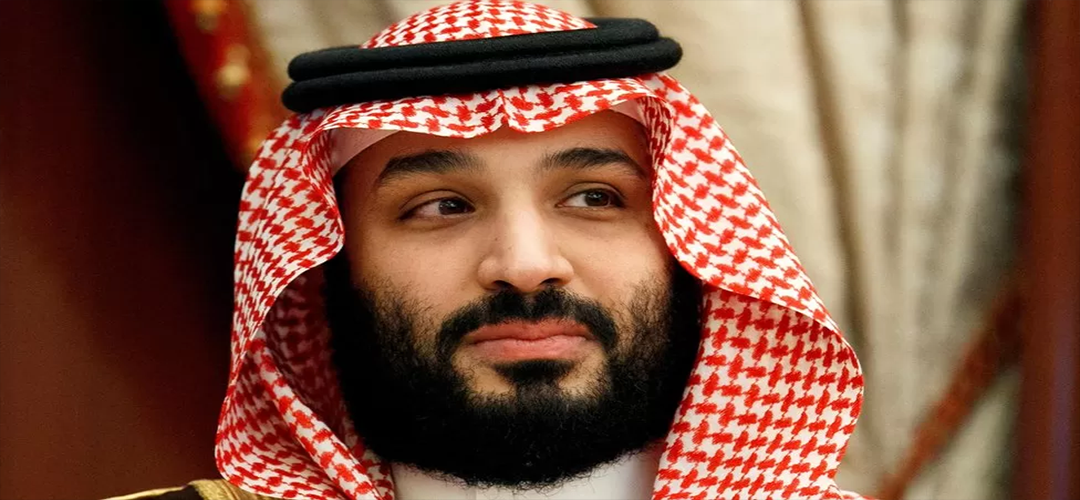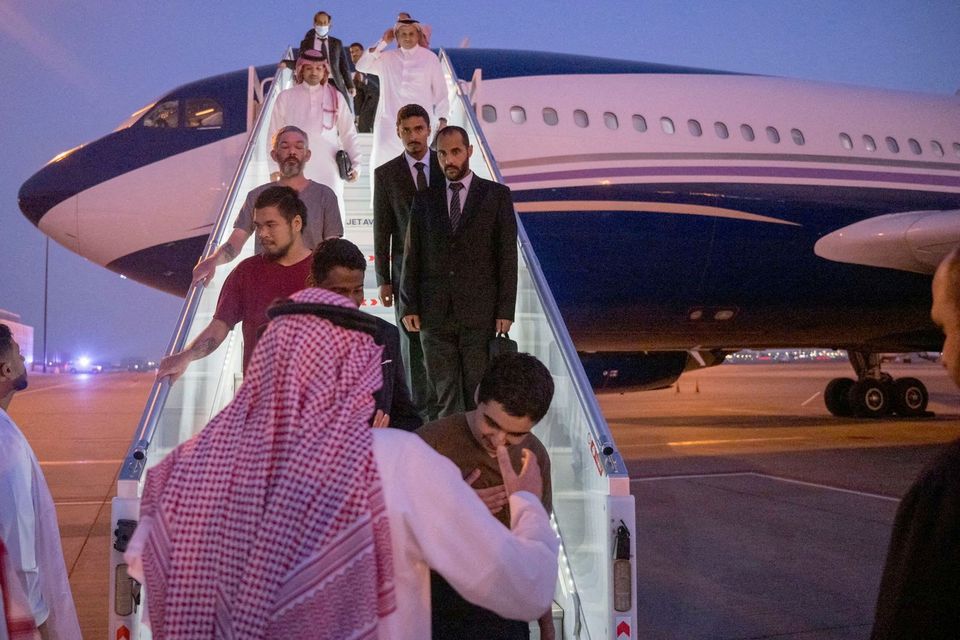SAUDI RIDING HIGH!
October 1, 2022 | Expert Insights

Saudi Arabia's behind-the-scenes role in the release of foreign fighters held in Ukraine marks a new milestone in its Crown Prince's growing international acceptance and heft. As a close ally of Washington, it gives Riyadh a window to remain on the right side of Moscow, too, without irking the Americans. Furthermore, the incessant criticism of the House of the Saud for human rights violations will be for once deflected by a genuine humanitarian act.
Ten foreign combatants, including two Americans and five Britons, were freed as part of a more extensive prisoner-of-war exchange that was mediated along with Turkey. The prisoner of war exchange also released 215 Ukrainians and 55 Russians.
Background
Saudi Arabia remains one of the fastest growing economies with sweeping pro-commercial enterprise reforms and doubled industrial sector recovery since the pandemic. The gross domestic product is expected to expand by 7.6 per cent, the highest growth in a decade. The war in Ukraine and the stoppage of Russian oil and gas have sharply increased crude prices leading to a windfall for the Kingdom.
Before the conflict in Ukraine erupted, Saudi Arabia, and Crown Prince Mohammed Bin Salman (MBS), in particular, were still battling to end their country's international isolation following the brutal killing of Jamal Khashoggi. An intelligence dossier declassified by US President Joe Biden last year said that MBS had authorised the operation against Khashoggi, an accusation the Saudi government vehemently denies. Per them, rogue elements within the security services were to be blamed and have been punished according to Saudi laws.
Western leaders, including President Biden and Prime Minister Johnson, had promised to make Saudi Arabia an international "pariah", a threat they had to recant in haste once the energy crisis struck.

Analysis
Earlier this week, MBS assumed a new title as Prime Minister. This new appointment formalises his role in the Kingdom's government, although it is well known that with an ailing king on the throne, he has been the de facto ruler for some time.
Since 2017, MBS has made significant changes in Saudi Arabia, including easing women's rights, reducing the influence of the clerics over society, and diversifying the economy beyond oil in line with his Vision 2030. The Kingdom is making clear that its soft power goals go even further all the way to space, where it aims to deploy astronauts next year, including a woman.
However, his reforms have been accompanied by a harsh crackdown on dissent, leading to the imprisonment of activists. Also, Saudi Arabia has had difficulty achieving financial objectives. The projected foreign direct investment has not yet materialised, and its growth programme has depleted the Kingdom's foreign reserves. The pandemic and the slump it created in the oil market did not help matters either.
According to Prince Faisal bin Farhan, the foreign minister, the Kingdom's mediation was solely for "humanitarian grounds," and it would be "extremely cynical" to assume it was trying to improve its image. Many of Saudi Arabia's neighbours have long taken on mediating roles to gain diplomatic influence both inside and outside the region.
Saudi Arabia may be attempting to duplicate the success of Turkey, which has garnered acclaim and attention for mediating the grain deal between Russia and Ukraine.
MBS has been gradually normalising relations with its neighbours, including Qatar and Israel, paving the way for regional stability and diplomatic ease.
Assessment
- As the leader of OPEC and the custodian of Islam's most sacred site, Saudi Arabia's diplomatic reach cannot be underestimated. Realistic and regulated links with MBS can be instrumental in thwarting Iran's nuclear ambitions and ending the Yemeni civil war.
- Despite voiced reservations, Saudi Arabia is dedicated to a multi-pronged foreign strategy in which it strives to strike a balance between long-standing alliances with the United States and Europe and more significant ties with non-Western nations like China, Russia, and India.
- States in the Middle East are increasingly stepping up to offer their services as mediators in other conflicts. Qatar, for instance, served as a middleman between the US and the Taliban during the US withdrawal from Afghanistan, and Israel offered to mediate peace talks between Russia and Ukraine.








Comments